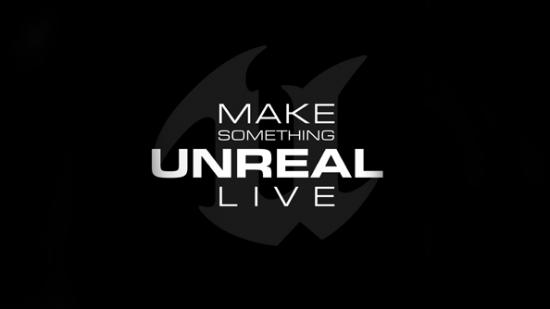This year marks the many-th recurrence of Epic’s Make Something Unreal competition – the modding throwdown which once spawned Red Orchestra studio Tripwire. In December, a panel featuring games industry types and our Tim shaved a shortlist of 12 student prototypes down to four finalists, who will iterate on their creations in front of crowds of strangers at the Gadget Show Live in five weeks’ time. Development as performance!
You might recall that 2013’s theme centred around the fundaments of genetics and genomics – the Mendelian inheritance. No? Well, it did. The theme was set by biomedical research charity Wellcome Trust, who’ve also loaned out scientific mentors to each of the teams. More on them below.
The four finalists are working with UDK, and have benefited from the advice and feedback of both ambassadors from Wellcome Trust’s Sanger Institute, and a few developers you might be familiar with.
Dead Shark Triplepunch, Blekinge Institute of Technology, Sweden – Epigenesis
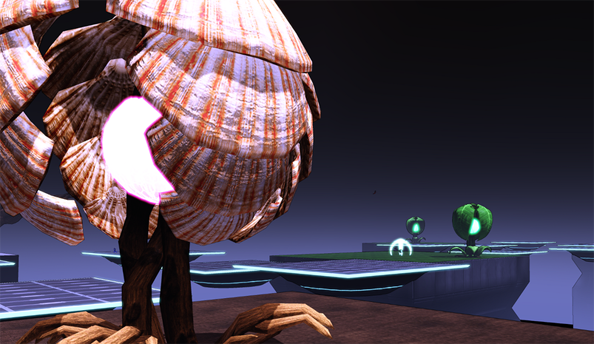
Dead Shark’s team of ten are working on a “fast-paced ball game”, played out across rooftops (ace) using gravity cannons (brilliant). They’re being mentored by Enemy Territory lot Splash Damage on the art of competition, I imagine, and by human genetics informatics specialist Josh Randall. Randall’s team performs analyses for “large-scale next-generation sequencing projects” in the Sanger Institute’s human genetics faculty.
Kairos Games, Staffordshire University – Polymorph
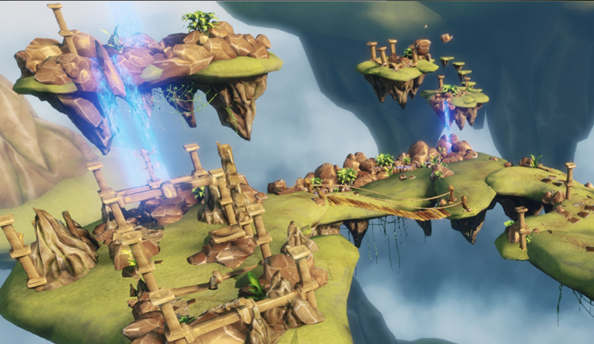
The nine-student squad formerly known as Team Polymorph are building a 3D platformer with the help of Ninja Theory and James Floyd, a statistical geneticist who in his day jobattempts to identify the genome mutations of individuals with rare genetic diseases. Here, he’s consulting on the adventure of a “brave amorphous character” and its offspring, who will envelop and adopt the evolutionary traits of the game world’s native species.
Static Games, Bournemouth University – Mendel’s Farm
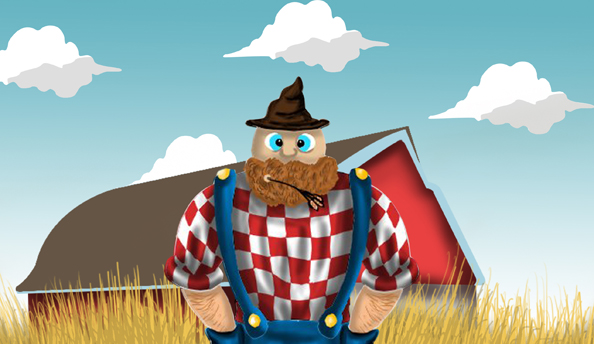
Restore pioneering 19th century geneticist Mendel’s once thriving farm to its former glory! That’s the task of the player in Statics’ game. The student team has enlisted help from Silent Hill: Shattered Memories’ Climax Studios, and from Wellcome Trust analyst Carl Anderson. A more typical Tuesday would see Anderson identifying risk loci for inflammatory bowel diseases.
Team Summit, University of Abertay, Dundee – Beings
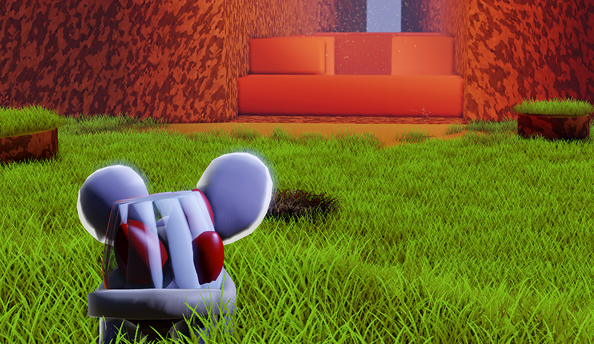
Team Summit have a relatively tiny headcount of four members, but are bolstered by Bizarre refugees Lucid Games (rumoured custodians of Project Gotham Racing’s future) and mouse pheromone expert Darren Logan. They’re making Beings, a puzzle platformer for children in which elemental challenges are overcome via selective breeding.
“The very high calibre of the scientists who are giving their time to mentor our teams is testament to the importance which the Wellcome Trust attaches to this competition,” said Epic’s Mike Gamble. “The students are working incredibly hard to make their games look their best and to bring some real depth to the subject matter in time for the challenge of developing and presenting live on stage for five days at Gadget Show Live.”
Wellcome Trust Broadcast and Games Manager Iain Dodgeon added: “We’re impressed by the great enthusiasm shown by the teams to research the scientific aspects of their games’ theme, coming up with original and creative concepts. The science mentors are able to help them build on these elements, bringing science into the game-world in a way that is relevant and fun.”
Science! Every one of these games sounds like something we hoped Spore might be, don’t you think?
